What Are the Best Multivitamins?
Written by:
Maia James
05/04/2023
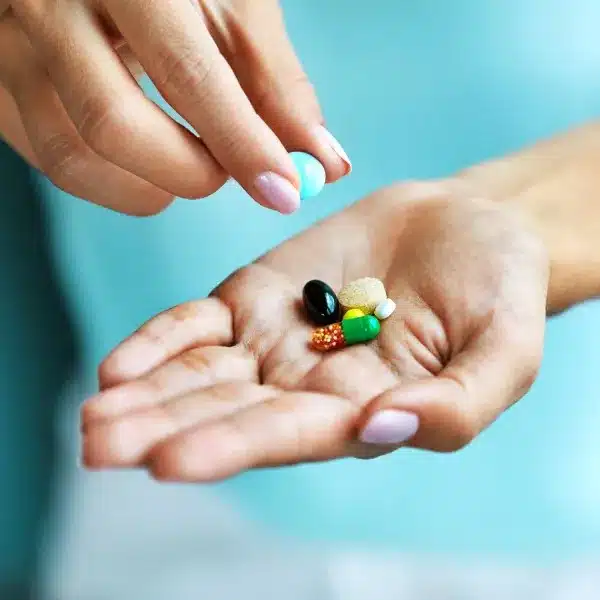
Updated: 04/15/2024
Looking for a different guide? Browse them all HERE.
A few years ago, a private client of mine gave me the opportunity to look more closely at the best multivitamins. I shared my opinion with the Gimme readership back then, and now am pleased to be able to update you guys again.
What follows is even more research on multivitamins (thanks Dr. Hopkins!), plus a few supplements I recommend for basically everyone. Most importantly, the guide below will reveal the only three brands we believe are making the truly the best multivitamins.
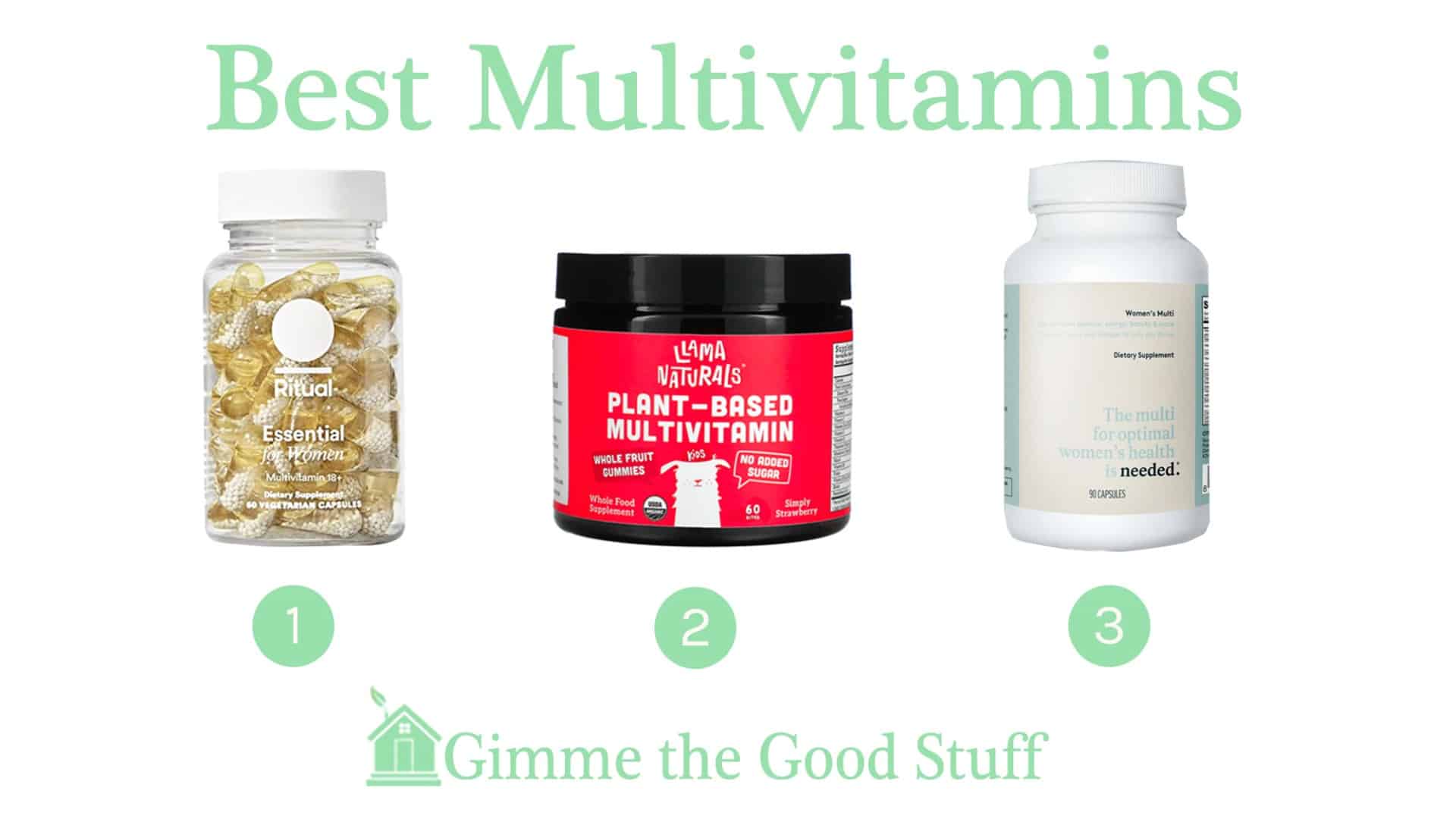
1. Ritual / 2. Llama Naturals / 3. Needed
Should We Take a Multivitamin?
Let me start with the part that you likely already know: The best way to hit all nutritional checkpoints is by eating a diverse range of vibrantly-colored fruits, vegetables, nuts, seeds, and whole grains.
This is hard to accomplish for a picky child, of course. Moreover, many nutrients are lost during the processing of the food most Americans eat.
For adults, there is no harm in taking a multivitamin, and some recent studies have me convinced there is value.
In general, I recommend against giving a multivitamin to very young children, for reasons I’ll explain below. My opinion is that high-quality multivitamins for kids six and older are without risk and may be beneficial.
If you opt out of taking a multivitamin, I recommend that both you and your children take a vitamin D supplement.
For breastfed infants, I like Bobbie’s vitamin D supplement.
You should also consider a fish oil supplement or a multi that contains fish oil if you or your children don’t eat fish.
The Case for Multivitamins
Science clearly shows that vitamins and minerals are important to overall health. Studies have also shown that the best way to get most nutrients is from our food. There is some evidence to suggest that the quality of modern soil and agricultural practices are insufficient to produce food as rich in nutrients as what our ancient ancestors ate.
Still, most researchers argue that isolating vitamins into pill form vastly reduces or even eliminates the benefits. The theory that multivitamins and supplements can “fill gaps” in our dietary intake of vitamins and minerals makes sense. And yet some studies have been unable to find health benefits when compared to placebo or non-use. Lately, though, I’ve been noting studies that DO show demonstrable benefits in populations who take a multivitamin when compared with those who don’t. This includes evidence that taking a multivitamin can offer protection against dementia and lung cancer.
Despite a lack of definitive benefit, many doctors recommend the use of a daily multivitamin. And we don’t think there is any harm in “covering your bases” by taking one.
I haven’t come across strong evidence that taking vitamins has any major downsides for most adults. There are a few worrisome studies I’ve found that don’t apply to most of my readers, but are still worth mentioning:
- Smokers who take beta carotene have an increased risk of lung cancer.
- Folic acid may increase prostate cancer risk. (This is another reason to avoid synthetic folate–more on this below!).
- Adults who take large doses of B vitamins for many years may have increased incidence of hip fracture.
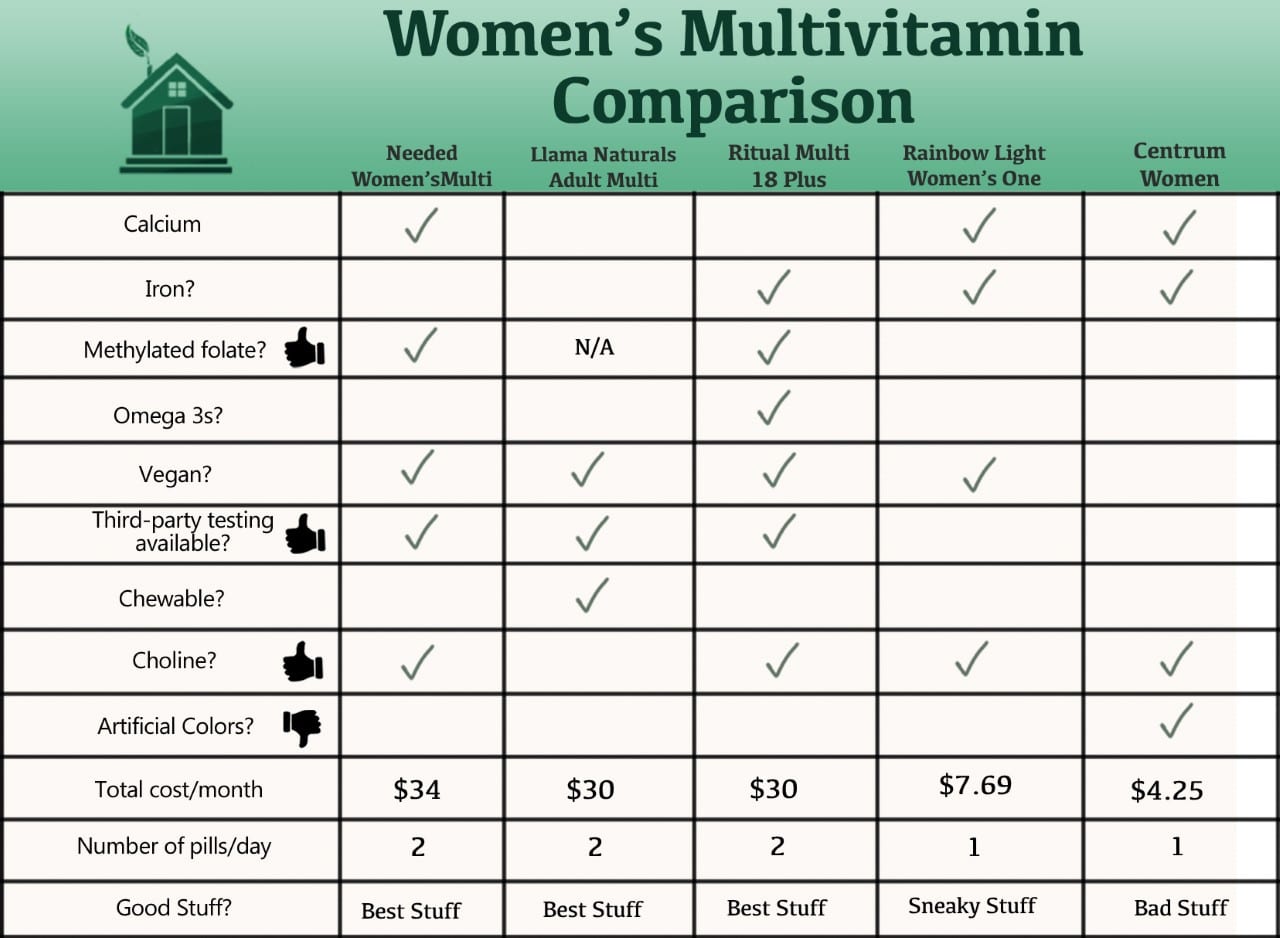
Overdosing on Vitamins
You can take toxic doses of vitamins—in particular preformed vitamin A, E, and K. Look for supplements with no more than 100% of your daily value for these.
Excessive doses of vitamin C have also been shown to increase the risk of kidney stones. Most of us get plenty of vitamin C in our diets, so it’s not one that you need much of in a supplement.
What are the Best Multivitamins for Women?
If you’ve decided that you’re going to take a daily multi, then of course you want to know who makes the best multivitamin. Making this determination becomes confusing very quickly! Here is what Dr. Hopkins look at when researching the best multivitamins for women:
- Third-party lab testing. This is probably the single most important determinant when it comes to recommending a multivitamin. You want to confirm that items in the ingredient label actually match the contents of the pills you’re planning to take every day (unfortunately, this is not something you can take for granted.) You also need to make sure that your daily multi doesn’t contain concerning levels of heavy metals or other contaminants.
- The right kind of certain nutrients, including methylated folate instead of folic acid (it’s better absorbed) and D3 instead of D2 because the former is more effective at raising vitamin D blood levels.
- The interactions between essential nutrients. For instance, calcium inhibits the absorption of iron, so a pill with iron should ideally not contain calcium. On the other hand, vitamin C helps aid the absorption of non-heme iron, so we like to see C included in a multi with iron.
- The inclusion of important nutrients. We gave extra credit to brands that included things like choline in their blends. Iron, on the other, might be important for some women, and not for others.
There are only three brands that we enthusiastically recommend for multivitamins, and they are as follows.
Best Stuff: Women’s Multivitamins
Be sure to check out the comparison chart above to see the differences between these three brands!
Llama Naturals Multivitamins Gummy Bites
If you, like me, hate swallowing pills, then these gummies will make taking vitamins something you actually look forward to. I take these every day after lunch when a sugar craving hits (I also take their vitamin D and probiotic).
I like this brand because their gummies don’t contain any sugar (they’re sweetened with organic apples and strawberries) are organic, and contain no synthetic vitamins. They are the only brand to make an entirely food-based vitamin, and one of very few to make their third-party testing data available. This vitamin blend does not contain iron, calcium, or choline.
Cost for one-month supply: $30
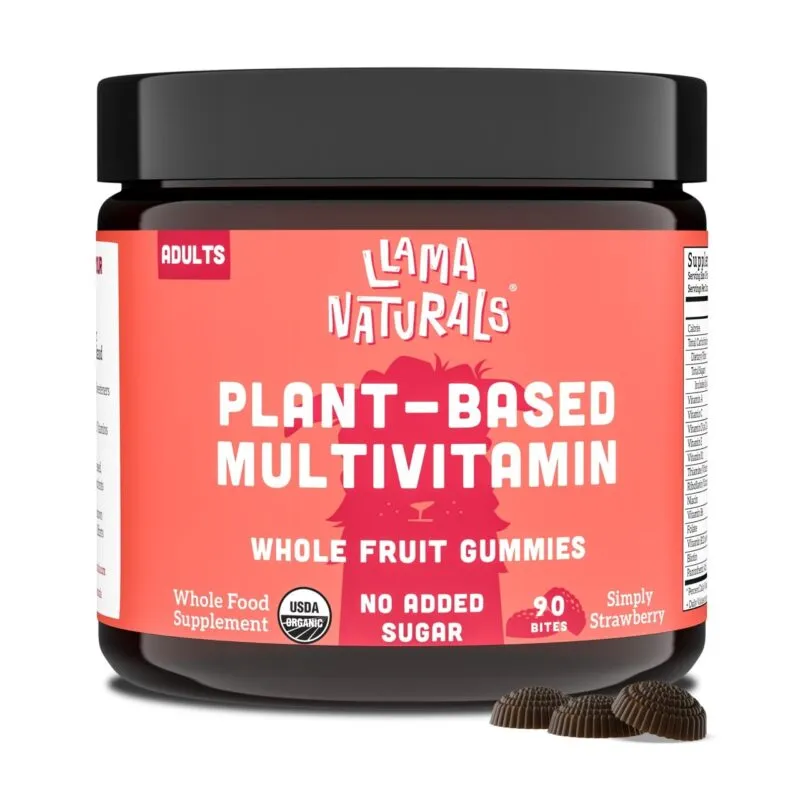
Ritual Essential for Women
Ritual’s multivitamin contains half of the number of ingredients of most multivitamins, so you’re not getting unnecessary or excessive amounts of nutrients. For instance, this multi doesn’t include calcium, because most women get plenty from their diets and it can impede the absorption of iron, which this vitamin does contain. (As a pescatarian, I like a multi with iron.)
Ritual’s multi uses methlyated folate rather than synthetic folic acid, and it contains omega-3 oil (a vegan form) in the same pill with the other nutrients. It also contains choline, which is important. Finally, Ritual’s multivitamin has an enteric coating to improve absorption of nutrients.
Cost for one-month supply: $30.
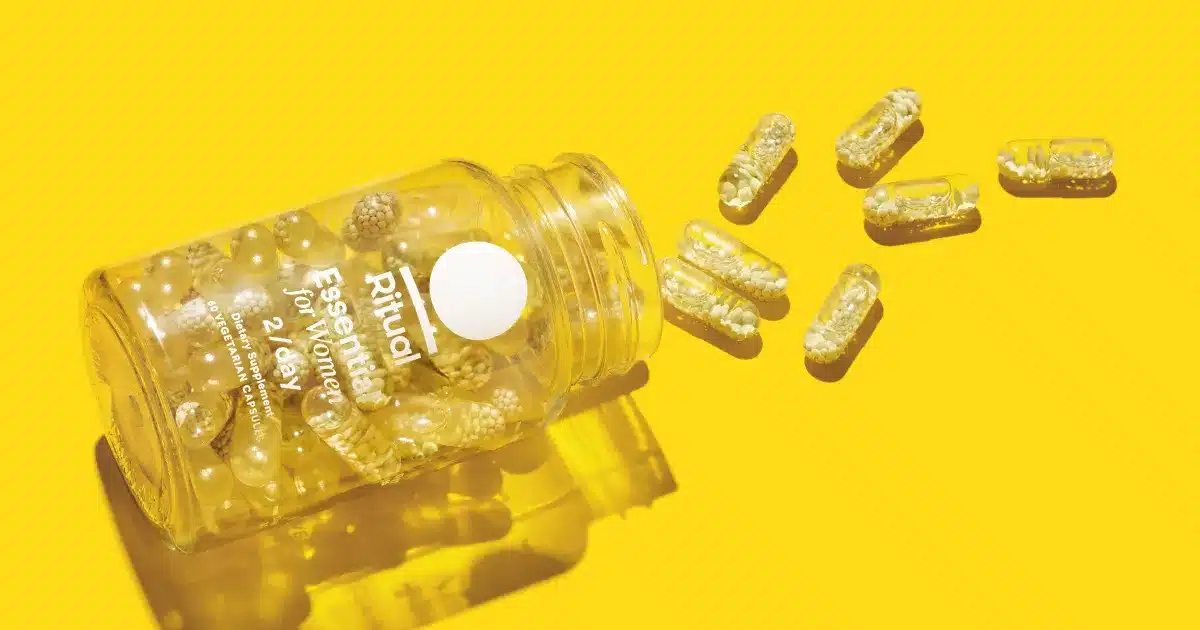
Needed Women’s Multi
Needed’s multivitamin for women has all of the ingredients we look for in a high-quality multi. They also produced a Certificate of Analysis proving the potency and piracy of their supplements.
Needed’s multi contains a healthy dose (50 mcg) of the optimal type of vitamin D (D3). It also contains methylated folate and choline, which not every vitamin contains but which we believe is important. This one does not have iron but does have calcium.
Cost for one-month supply: $34. Use code GIMME20 for 20% off.
Other Multivitamin Brands You Asked About
There is an ever-increasing number of brands selling multivitamins to women. Here is my take on the ones you ask about most, none of which made the cut to be included in the above section of Best Multivitamins for Women. That said, many of these brands have really thoughtful ingredients and are just missing third-party test results to put them into our list above. So, I wouldn’t tell you NOT to buy them, necessarily! Just that I cannot promise their purity or potency without seeing those results. The research here was also provided by Dr. Michael Hopkins, PhD.
Care/Of Multivitamin
This subscription vitamin is ultimately a no-frills multi that contains a mix of naturally sourced (where it matters) and synthetic (where it probably doesn’t matter) non-organic, non-food based vitamins.
It’s a weird that this multi doesn’t contain folate (they are the only one we found). But they do include choline (and more than any other multi, with 20% RDA), calcium, magnesium, silica, and borate so the ingredient list seems thoughtful. This vitamin does not contain iron and it is not vegan.
Without a willingness to share any third-party test results, I cannot recommend this multivitamin.
Cost for a one-month supply: $7.50
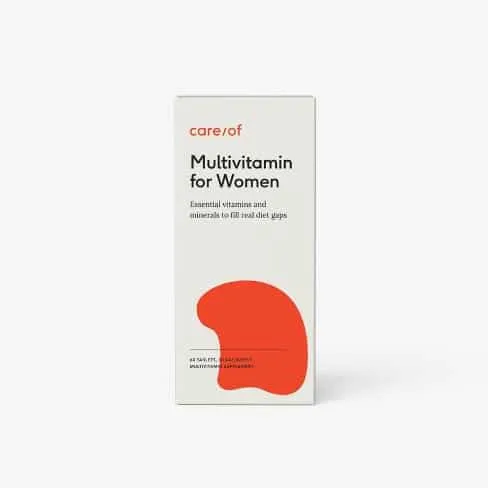
Goop Glow Every Day Multivitamin
This is not an organic or food-based vitamin, but the ingredients are high quality and not cheap synthetics.
Goop uses the good forms of vitamins D (lichen-derived, so vegan), A, and E. They also use methylfolate instead of folic acid, which is what you want to see, and the version of iron (ferrous bisglycinate) that’s formulated to be more gentle on the stomach.
We will also give Goop bonus points for containing choline, because many do not–even if it’s only a small amount (6% RDA).
We cannot recommend Goop’s multi unless they get back to us with information on third-party testing, which as of this writing hasn’t happened.
Cost for a one-month supply: $60.
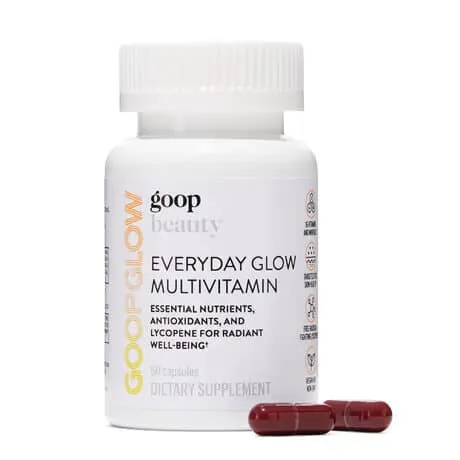
Perelel Women’s Daily Trio
This brand of multi gets some things right, including using the methylated form of folate and natural vitamin A instead of retinyl palmitate. Because Perelel’s multi comes in a trio packet, an omega-3 pill is part of your daily pills, along with a biotin-collagen supplement.
Perelel advertises their third-party testing “to confirm purity and potency,” but the representative we spoke to couldn’t share any more specifics.
Perelel’s multivitamin pack does contain cheap synthetic versions of several vitamins–this doesn’t mean they are ineffective, but for readers who really want an organic, food-based multi, it’s worth noting. They also don’t contain any iron or calcium, which might matter to certain women with specific nutritional needs.
Parelel vitamins are not vegetarian or kosher for those who care about that
Cost for one-month supply: $30.
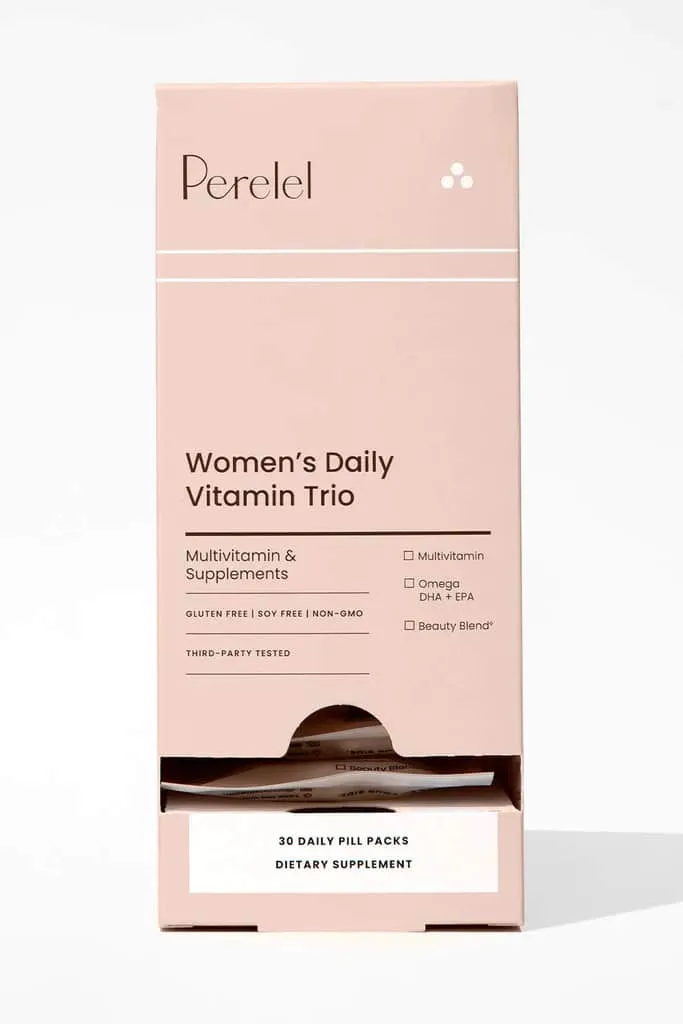
Pure Encapsulations O.N.E. Multivitamin
We give Pure points for containing choline (although it’s only 5% RDA) as well as the added coenzymes and antioxidants. Some readers may want to know that these vitamins do not contain calcium or iron.
Pure uses high-quality bioavailable versions of each vitamin, but they’re not food-based. They could not provide us with any third-party testing information.
Cost for a one-month supply: $20.
Sakara The Foundation
You already know that I love love love Sakara meal plans, so I was excited to try their take on a multivitamin.
We like that the food ingredients in the Sakara vitamin pack are organic. Sakara uses methylated folate, natural vitamin E, and lichen-derived D3.
We also give Sakara credit for including iron in their multi, as well as additional pills (this one is a packet rather than pills in a bottle), that include calcium, magnesium, choline, a probiotic, and omega-3 oils.
Sakara’s blend does include some synthetic vitamins, including some of their beta carotene and the vitamin C they use. None of this is a deal-breaker in my opinion. Some of the vitamins have more than 1000% of the daily requirement which is typical for vitamins that are not truly food-based.
Unfortunately, we can’t recommend Sakara’s multivitamin because they won’t share any information about testing for purity or potency.
Cost for a one-month supply: $120.
Use code MAIASAKARA for 20% off everything
Thorne Basic Nutrients Multivitamin
Thorne makes no claims of being food-based. The primary goal of this multi is to pack as much as possible into a small serving size, which they do effectively.
Thorne has the most extensive assortment of essential vitamins and minerals of any vitamin we reviewed. In addition to calcium, these include iodine, chromium, boron, and manganese for example. These do not contain iron, which is actually a good thing because of the calcium they contain.
Thorne get points for using the higher quality/more bioavailable form for several ingredients, including methylated folate and natural vitamin E.
On the other hand, they use synthetic beta carotene and palmitate for vitamin A (which can be toxic at high doses).
Thorne uses TRAACs products for all its minerals. We haven’t directly discussed the TRAACs™ minerals made by Albion, but these are proprietary synthetic versions of several essential nutrients that have been glycine chelated to make them more easily digestible and more bioavailable than natural minerals. These are synthetics by definition, but also sort of the gold standard in the supplement world for use in pills that won’t cause GI issues.
Notably, this multivitamin also contains hundreds of times more than recommended for several essential nutrients, which is also a reflection of their synthetic production, rather than being food based.
No one was able to provide us with third-party testing information.
Cost for a one-month supply: $29.
Truvani Organic Multivitamin
The Food Babe’s multivitamin scores high points for all of the Good Stuff criteria, but we cannot officially recommend them unless they are willing to share third-party testing.
What makes Truvani unique is that it’s all organic, and truly plant-based–the majority of the ingredients are derived from an organic food blend.
It doesn’t contain any of the problematic synthetics we see in many multis, and uses D3 from algae instead of lanolin, which makes it a vegan multi.
Some people may not like that it requires taking three large pills each day.
The folate in this multivitamin comes directly from an organic fruit blend, which we think is a plus. I do wish this vitamin included choline and magnesium.
We asked for justification on the ingredients that differ significantly from the recommended daily values. Some, like B12 and Biotin, are much higher (as much as 500%), and others, like zinc and vitamin A, are much lower (as little as 9% of what’s recommended.) We were promised a follow up from the product development team, but it never came.
As for that third party testing–the rep we spoke with stated that Truvani vitamins all undergo third-party testing for heavy metals and other contaminants but that they couldn’t share the data. When I asked about lab testing to verify the ingredient label matches the pills, they said they perform testing with every batch to ensure quality (in house) but wouldn’t share any data from that. For this reason, we don’t recommend this vitamin despite its merits.
Cost for a one-month supply: $40.
Should Kids Take a Multivitamin?
Considering how many kids take multivitamins, I was surprised to uncover very little research on the benefits and risks of this daily habit.
Part of the problem is that each brand of multivitamins contains a different cocktail of vitamins, and the quantities of each vitamin varies as well. When studies are done on “multivitamins,” they don’t seem to take these differences into consideration. Therefore, we really don’t know which combinations of vitamins and minerals carry which benefits or even which potential risks.
Here are a few red flags I uncovered:
- An association between multivitamins before the age of 6 months and increased risk of asthma among black children.
- The same study showed increased levels of food allergies among formula-fed infants who were given multivitamins before the age of 6 months, and increased levels of food allergies amongst 3-year-olds exposed to multivitamins (whether they had been breast- or formula-fed).
- Another study found that the nutrients most lacking from the diets of children ages 2 to 8–-namely, calcium and vitamin D–-remained lacking despite multivitamin use. Researchers attribute this to the fact that children’s multis are heavy in the “wrong” nutrients–B vitamins and vitamin C, for instance, both of which kids get from food. Moreover, multivitamin use led to excessive levels of certain nutrients, like iron, zinc, and copper in this study. The effects of this are unknown.
What Are the Best Multivitamins for Kids?
Overall, I think the potential for a downside outweighs the potential benefit of multivitamins for kids under about the age of about six. Of course, I defer to your pediatrician–if he or she recommends that your child take a multi, or if your child has a very restricted diet, there are a few brands that qualify as Good Stuff that you can consider.
And for older children, a high-quality multivitamin might be beneficial and probably isn’t harmful. Based on our research, there are three brands of multivitamins for kids that I can recommend.
Best Stuff: Kids Multivitamins
Llama Naturals Kids Multivitamin Gummy Bites
This is a unique gummy brand because it has no added sugar–the vitamins are sweetened with just fruit. It has a good range of naturally-derived vitamins, including 100% the daily requirement of vitamin D. As I mentioned in my review of the adult multi above: Llama is the only brand I have found that uses zero synthetic vitamins in their blend. It remains my top pick.
Cost for one-month supply: $30
Ritual Essentials for Kids
Sweetened with monk fruit, Rituals chewable vitamins also contain fiber, a prebiotic, and omega-3 oils. Ritual has separate (non-chewable) formulas for teenage girls and boys, both of which adhere to Ritual’s strict ingredients sourcing policy.
If you’re enjoying this guide, sign up for our Newsletter to be alerted when we publish or update our Safe Product Guides.
Two Pills You & Your Kids Probably Need
Multivitamins may not be necessary for everyone, but there are a couple of supplements likely worth taking.
Vitamin D
Higher levels of vitamin D are protective against a variety of diseases. Vitamin D also enables calcium absorption, making it critical for growing children. Unfortunately, it’s hard to get sufficient vitamin D from diet alone (which is why I recommend time outside without sunscreen). Supplementing 400 IU a day for babies and children and 4,000 for adults makes sense, especially because vitamin D carries a low risk for toxicity. This is the vitamin D we take in my house.
Omega-3s
These fatty acids are crucial for good brain and heart function, and are found in fatty fish like salmon and sardines, breastmilk, and some nuts and seeds. If you and your kids eat fish regularly (even relatively small amounts), you are probably covered. If not, you may want to consider a DHA supplement.
Nordic Naturals Baby’s DHA is a good one, as are the Nordic Naturals supplements for adults. (Note that the orange-flavored “Fishies” by Nordic Naturals have low levels of omega-3s and are basically candy.) Ritual’s kids multivitamin also contains omega oils and is Good Stuff approved.
Another supplement that you might consider is one with B12 if you are a vegan. This one has 75% of what you need in a day.
Finally, probiotics are good for all of us, but they are beyond the scope of this post. The one that I take every day is this. UPDATE: Our probiotics guide is live!
What supplements and vitamins do you like? Please share in the comments below.
Stay sane,


Maia, Founder & CEO
P.S. If you’re pregnant or thinking of becoming pregnant, you may want to read our guide to the Best Prenatal Vitamins.
Note: This article contains affiliate links or sponsored content, which means that if you make a purchase, we may earn a commission. We only recommend products that meet our strict standards for non-toxicity and that we use (or want to use!) ourselves. Thank you so much for supporting the brands that make Good Stuff!
Enjoying this guide?
Join 60K families who rely on our free guides on everything from milk to mattresses! Sign up to get $5 off your first order, access to our ultimate Clean Products Cheat Sheet, and ongoing exclusive access to coupon codes and promotions. Our weekly newsletter is filled with well researched tips and tricks to live a toxin-free lifestyle.
Related Posts
Best Prenatal Vitamin Guide
42 Ways to Have a Healthy 2024
What to Do in Dry January: An Idea for Every Day of the Month
Best Probiotic Brands Shopping Guide
102 responses to “What Are the Best Multivitamins?”
-
As a stay-at-home mom, I’ve incorporated B Complex supplements into my routine, and the difference in energy levels is notable. I appreciate your focus on whole-food approaches. Are there other multivitamins for moms that offer comprehensive support for energy and overall health when paired with B complex?
-
Great article as always, but I’m confused with First Day being dropped. My kids don’t like the Ritual, and we switched from Hiya to First Day after good reviews from you I thought. Did I make that up? My wife and I are also taking them now instead of Ritual, so I am wondering if I made a mistake in switching. Any input would be much appreciated.
-
Have you heard of Raise them Well? They are based out of NC and were created by a holistic/integrative medicine doctor and his wife. Would love your thoughts!
-
I don’t know this brand but will add to our list for our next update.
-
-
I wish that everyone realized that nutrition affects behavior and brain development. I learned the hard way with my son and now focusing on nutrition and his overall well-being. We both take FD gummies, it has become our morning ritual. We love them!
-
glad to hear it!
-
-
Our Pedia recommended First Day gummies for my 3 kids because it has the right amount of vitamins they need daily. It is the only vitamin they enjoy. I switched from Hiya to FD and I think I am staying.
-
Can you please review vitamins by Love Wellness?
-
Will make a note for the update, yes!
-
-
Have you tested Garden of Life’s Vitamin Code Vitamins?
-
Not for this post–will add to our list for an update!
-
-
Gimme The Good Stuff: I recently purchased Babbo Bath and Body. It burns my eyes. I have also noticed some itching recently after using it and using a different body lotion. Has anyone reported such experiences? With Regards,
Lucy-
We have not heard of this reaction, no. Sorry to hear it!
-
-
We just started with Hiya vitamins. We tried SO many and this is the best we’ve found by far. All my mom friends give it to their kids and now so do we. 🙂
-
Love your recommendation about Hiya! We ordered based on advice from our dentist and it’s been amazing. Best vitamin by far.
-
We tried a few of these and absolutely LOVE Hiya. We’re so happy we made the switch and won’t be going back.
-
Hi Maia!
I’m a vegetarian and I’m now very anemic after my three pregnancies. Do you have a recommendation please for iron for people who are iron anemic, especially vegetarians who may be deficient on both B vitamins and iron?
Thanks so much 🙂
Madeleine -
hello!!! love your site! question! by boy 4years old needs vitamin B12 but doesn’t like to bite it! I need advice which syrup or spray i can buy! thank u!
-
Have you reviewed Mary Ruth Organics liquid vitamin? I’ve started giving it to my toddler but now after reviewing this post I’m questioning if I should be.
-
Thanks for your article. It is quite helpful. I wish you offered a recommendation for a more affordable option. It’s unfortunate that good healthcare is limited to those who can afford it. $30/month per family member is not within reach of many people. There are a lot of other options out there that provide nearly 8 months for only $15. And while obviously these are not anywhere near the same quality, it would be helpful knowing which lower end options are better than others.
-
Hiya is worth it — best brand and best company.
-
-
Thanks for the article! We’ve done a ton of research and cycled through every kid’s vitamin imaginable. Our little one has a vitamin d deficiency, so we spent a long time talking with her pediatrician about options.
After researching and testing, I’ve determined you should never give your kid a gummy vitamin. It’s just candy in disguise and it cause cavities and doesn’t even help.
The best option we’ve settled on is a new brand called Hiya (www.hiyahealth.com). It’s not perfect, yet the packaging is gorgeous, it’s thoughtful with its ingredients, and my daughter loves the taste. So it’s a win for me.
-
I agree I just started giving my 4 year old daughter Hiya and she loves it.
-
-
I’m not so much sure what the thing that matters is between the Animal Parade Gold and the normal Animal Parade. They come directly to my home, they’re all-characteristic and non-GMO. I think they have truly assisted with boosting my vitality and they aren’t no picnic for my stomach.
-
Hi Maia, I am also interested in what you think about First Day Multi for kids as well as Hiya Multi for kids, Mary Ruth’s Kids Multi and Llama Naturals Kids Multi. They praise to be better because they use organic ingredients, no sugar, additives, or preservatives but I would like to know if the type of vitamins in them, where they are derived from, and the daily amount they are getting from the vitamin is safe. There are so many parents trying to find the safest and best multi for their kids and with so many things to factor in it’s hard, especially with all the options out there now.
– Garden of life
-Rainbow light
-Dr. Mercola
-Mary Ruth’s
-First Day
-Hiya
-Llama Natural (organic & plant based)
-MegaFood
-Thorne
-Natures Plus
To name a few that many of us have come across looking for a healthier kids multi. Hope you get to read this and give more help and insight on choosing a great brand. Thank you. -
I would love to know what you think of NaturesPlus Animal Parade vitamins for kids. I’m not really sure what the difference is between the Animal Parade Gold and the regular Animal Parade.
-
Wow, great article. Thank you so much! I am using Garden of life gummies (https://www.gardenoflife.com/content/product/mykind-organics-kids-multi-gummies/). Any thoughts on them? My boys are 4 and 7 and I give them 3 daily (4 is recommended). Thank you Diana
-
I prefer my Natural Factors Vitamins from Village Vitamin Store. They come straight to my house, they’re all natural and non GMO. I think they have really helped to boost my energy and they aren’t hard on my stomach.
-
I know you said you are lukewarm in regards to kids multivitamins. But, have you heard of First Day Vitamins for kids? https://hifirstday.com. If so, what are your thoughts?
-
I would be interested in your thoughts on this multi as well.
-
Hi there! I had never heard of this brand, so thanks for putting it on my radar. I see no red flags! I’ll keep digging, but looks like Good Stuff:)
-
Hi Maia,
I have started taking Sport Formula 99 because my sister was taking it and her hair, nails and health had improved so much that I could see the difference. She also would get sick a lot but that also stopped. She told me she was taking this and I bought some. Ive been on it for a couple of months now. Could you please check it out and see what you think?
-
-
-
I’m really surprised you don’t recommend a probiotic? That’s top on my list. In fact my pediatrician recommends Reuteri probiotic – 1/4 tsp 2x a day which I put in her milk. For myself, I’m a huge fan of Klaire Labs
-
yes, love Klaire labs!
🙂
-
-
Hi,
Thanks for all your research on this and everything else! I give my children this in juice b/c of the following from his site: “Fish and fish oil are unfavorable sources of DHA and EPA because most fatty fish contain harmful pollutants. Dr. Fuhrman’s DHA+EPA Purity is derived from lab-grown algae and contains no contaminants.”
Please let me know if you see anything wrong with this brand. Thanks!
https://www.drfuhrman.com/shop/products/52/dhaepa-purity -
Two questions:
1) You mention everyone needing a Vitamin D supplement. I live in California and make it a point of being outside (without sunscreen) for at least 5 minutes daily with my 11 month old. On rainy days (where we won’t be standing outside!) I do take a large quantity of Vitamin D so that he’s getting it through the breast milk. Do you think everyone needs a Vitamin D supplement daily if they are in a sunny environment? I was told I was okay to not take anything if we were in the sun daily.2) I can not eat dairy and while I know there are dark leafy greens that provide calcium, I’m concerned that I don’t get a sufficient amount of these in my diet. While working to increase my consumption of them, I also thought it safest to ingest calcium supplementation either in a multi or separately. Would you recommend calcium in this instance?
-
Keeping in mind that I’m not a doctor:
1) I’d get your vitamin D levels tested and see if you’re deficient. It may be that your sun exposure is plenty!
2) I personally feel you can get enough calcium from a healthy vegan diet–you didn’t mention if you eat meat?
-
-
What are your thoughts on Juice Plus products? I give my kids the gummies and I take them in pill form.
-
I’m also interested on your thoughts about Juice Plus+ products.
-
I would be interested to know your thoughts on Juice Plus as well.
-
Hi Melissa!
Wow I just posted my above comment on this page and scrolled down and saw these recent posts on Juice Plus, what an amazing coincidence! I have been in fitness & healthcare for 9 years- I fully stand behind their products!
Please read my brief post on why it is so important to get your Omegas from plant sources NOT FISH OIL!!!
I would love to share even more eye opening info with you on all of their products!
You can message me on my instagram handle @_bodybykeri_ or you can email me at bodybykeri.@gmail.com.
My Juice Plus+ website is keriluce.juiceplus.com
Peace & Wellness to you!
Keri Luce -
Juice Plus+ is absolutely AMAZING! Check out my website keriluce.juiceplus.com and send me a message for more information!
-
-
Hi Rebeka!
Wow I just posted my above comment on this page and scrolled down and saw these recent posts on Juice Plus, what an amazing coincidence! I have been in fitness & healthcare for 9 years- I fully stand behind their products!
Please read my brief post on why it is so important to get your Omegas from plant sources NOT FISH OIL!!!
I would love to share even more eye opening info with you on all of their products!
You can message me on my instagram handle @_bodybykeri_ or you can email me at bodybykeri.@gmail.com.
My Juice Plus+ website is keriluce.juiceplus.com
Peace & Wellness to you!
Keri Luce
-
-
Hi Kerry!
Wow I just posted my comment on this page and scrolled down and saw these recent posts on Juice Plus, what an amazing coincidence! Please read my brief post above on why it is so important to get your Omegas from plant sources NOT FISH OIL!!!
I would LOVE to share more information with you.
My instagram handle is @_bodybykeri_ or you can email me at bodybykeri.@gmail.com My Juice Plus+ website is keriluce.juiceplus.com The Omegas blend is the most important Juice Plus+ product in my mind. Would love to share even more eye opening info with you!Peace & Wellness to you!
Keri Luce -
Hi Rebeka!
Wow I just posted my above comment on this page and scrolled down and saw these recent posts on Juice Plus, what an amazing coincidence! I have been in fitness & healthcare for 9 years- I fully stand behind their products!
Please read my brief post on why it is so important to get your Omegas from plant sources NOT FISH OIL!!!
I would love to share even more eye opening info with you on all of their products!
You can message me on my instagram handle @_bodybykeri_ or you can email me at bodybykeri.@gmail.com.
My Juice Plus+ website is keriluce.juiceplus.com
Peace & Wellness to you!
Keri Luce
-
-
My doctor always recommends thorne supplements. In fact, every naturopathic doctor that I’ve ever been to recommends their brand of supplements. I do give my children a half dose of a vitamin (pure encapsulations), because I want them to get the methylcobalamin and methyl folate that they might not be getting enough of from food. I used to be a big believer that my kids were getting everything from food, but nowadays there is no guarantee of that because of quality issues. I can’t speak to lab stats, but overall my daughter says she notices a difference in her energy. We also do calcium, magnesium, and vitamin D.
-
Hi! Great all around info….but have you ever considered the fact that fish actually get their omegas from consuming ALGAE and that getting Omegas from plant based sources is so much better for the health of humans and the planet! Flax meal, Chia etc and plant based Omega supplements like Juice Plus+ which contains algae, sea buckthorn oil, pomegranate seed oil, raspberry seed oil, tomato seed oil…
Fish oil is contaminated with heavy metals, even arsenic and various studies have shown fish oils go RANCID on shelves….plant based Omegas are WAY safer and MORE environmentally friendly and cause so much less devastation to our Oceans from the impact the fish oil industry!
Making simple small simple changes like this really adds up <3.
It is NOT any consumers fault that they only think you can get omegas from fish- this deceptive marketing has been engrained in our culture from these huge corporations at the expense of our oceans and our own well being, even some doctors don't understand the negative implications of highly unregulated fish oil- if they only knew to suggest the plant source in the first place!
PLANTS ARE POWERFUL!
-
-
Hello Maia,
Do you also recommend “Essential for Women” as a multivitamin, for those of us who are not pregnant, (https://ritual.com/products/essential-for-women-multivitamin) based on your prenatal guide: https://gimmethegoodstuff.org/safe-product-guides/organic-prenatal-vitamins/?
Let us know and thank you for all your good work. It’s appreciated.
-
I’ve given my daughter, now 3.5 Rainbow light kids multi, mostly because I thought the probiotic in it was important. Now that I see it’s unnecessary to give her a multi, I’d love to hear what you think about the importance of a probiotic for children (& adults). And if you think helpful, then I’d love a brand suggestion. She does eat a small amount of a relatively healthy organic, whole milk, Greek yogurt daily too. Thank you.
-
Hey! We wrote about probiotics here: https://gimmethegoodstuff.org/baby-biotics-what-are-the-best-probiotic-supplements-for-babies-kids/
-
-
I’m not really a fan of multivitamins either. But when my 6 year old started getting bad leg cramps, I tried to do all the recommended things to help keep them at bay such as upping magnesium, potassium and calcium in his diet, making sure he was getting enough water, ect…), but he was still getting them very often. So I decided to try giving him a whole food vitamin every other day and his cramps have almost completely stopped. I really don’t like giving vitamins but it really does seem to help him. I give him naturello kids multivitamins, do you think the ingredients look ok? I chose it because it came from whole foods and it had higher magnesium.
-
Yes I like Naturello!
-
-
What Vitamin D do you recommend for toddler’s 2-4?
-
Any thoughts on Nature’s Plus vitamins? I love that they are whole-food supplements. I am in the process of transferring my whole family over to a healthier medicine cabinet so I am specifically looking at the animal parade multi, calcium, vit. D as well as the garden life prenatal and the mens multi.
-
Would you recommend rainbow light prenatal one or garden of life mykind Organics prenatal once daily? Thank you!
-
Our prenatal guide will be out by the end of the month and will answer this:).
-
-
Hi Maia,
We don’t use a multivitamin, but in our daily routine we use LifeChoice brand for our probiotics, cal/mag, and B complex (I am a huge fan of the quality of their products.) We also use St. Francis vitamin D & Nutrasea fish oil daily.
-
Green tea extract, natural flavors and sunflower oil in their fish oil? I would be cautious taking these products. The bottles are pretty, but natural flavors is usually code for any number of questionable hidden ingredients. And green tea extract has a lot of bad publicity for its potential link to liver issues. But don’t take my word for it, research further. The B vitamins (lifechoice) have maltodextrin, silicon dioxide, sucrose and (Spirulina) source (?) I personally would not take this product. It has too many “other ingredients.” that I don’t think should be in a quality vitamin. MegaFood B complex is what I take and is very good.
-
-
I would love an updated supplement post! My husband and I and our four kids do take some supplements, and it’s changed over the years. My toddler does use the Honest baby/toddler multi vitamin powder, and although the recommendation is for two packs, he’s only ever taken just one a day. The rest of our family currently takes garden of life. I’m taking the women’s vegetarian, my husband takes the men’s vegetarian, my teenager takes the family vegetarian, my 6 & 10 yr olds take the children’s chewables. My 6 year old, 3 year old and myself all take Carlson’s cod liver oil as well.
-
Hi Maia,
Thanks so much for this post and sharing your research with us. I have learned so much and have made much more informed decisions about the products I purchase for my kids and myself.
Quick question about the kids Vitamin D – why did you choose the Carlson’s brand? What are your thoughts on Baby Ddrops? What about VitaDaily D3 drops?
Also, if I am taking an Omega 3 supplement and I’m still nursing my 15 month old, does he get enough through breast milk? Would you still supplement?
-
I too am interested in Maia’s take on the VitaDaily Baby D3 Drops. I am leaning towards this brand over the Carlson’s brand due tot he fact they are 100% organic and I worry about the fact Carlson’s is lanolin-based, non-organic D supplement, with lanolin being so laden with pesticides.
-
-
Reading through the comments it looks like you were looking to do another post about vitamins- have you> I’m interested in learning about what prenatal vitamins are the best out there
THanks! love your site!-
I just saw a IG repost of a lawsuit Sunshine vitamins just settled for having high levels of led. Can you confirm this? Thank you!
-
-
Hi Maia,
What about Nordic Naturals Baby DHA with D3? You’d recommended Nordic Naturals Baby DHA but also recommended a different brand Carlson Lab for Baby Vitamin D. Just wondering if there was something you’d found in the Nordic Naturals Baby DHA with D3 that you didn’t like?
-
Nope, nothing bad in that brand;)
-
-
Hi thank you for you site! I love it.
While looking at your review for children’s vitamins I noticed that there was a lack of information regarding vitamin B complex. Vitamin B complex are very important for mental development from everything that I have learned from being in the healthcare industry and was also something our pediatrician discussed with us as something that is commonly lacking in children’s diet. Vitamin D and calcium the often receive in milk and fortified juices so our pediatrician feels there should be more focused and vitamin B. Do you have any information regarding this, I would love to hear your research and opinion on this. Thanks again for the great site. Take care -
I’m a big fan of the Mega Food brand. I am taking their Vitamin D and Prenatal Vitamin and my husband takes their Men’s Multi. As for DHA, I take OmegaZen. It’s algae based so not from fish. I order it on Raw Power now because the Amazon distributor stopped supplying it regularly. Highly recommend OmegaZen. I haven’t looked yet but would love to hear more about some other supplements used in green shakes i.e. spirulina etc.
-
Hi! I love your thoughtful reviews!
Have you read much about how part of the population really can’t tolerate folic acid? I was surprised that you recommended a multi with folic acid (rainbow) rather than folate. The second multi’s description of folate seems suspicious to me as well…
This might be of special interest when you look at prenatal vitamins – as it’s thought that folic acid, for those who can’t tolerate it, could cause miscarriages (among other unpleasant things).
Thanks and take care! -
Do you worry about the vitamin A level in the Nordic Naturals Baby DHA? I had trouble finding any without, though. Honest makes a baby DHA without Vitamin D, but I’m kind of on the outs with them now with all the recent controversy!
-
Yes, I know, a lot of people have sort of had it with Honest, although for the most part I do think it’s still a good brand. I think the Nordic Naturals is the best option for baby DHA, high vitamin A and all…
-
-
Hi Maia,
Thank you for the post. What are your thoughts regarding giving probiotics to toddlers? I give those to my 18 mo old when we travel, or when she was on antibiotics and if/when she has weaker digestion than normal and could use some help with gut health.
Thanks!
-
We recently blogged about probiotics:) https://gimmethegoodstuff.org/baby-biotics-what-are-the-best-probiotic-supplements-for-babies-kids/
-
-
Since (as above) I couldn’t swallow the Rainbow Light ones, I ended up getting Garden of Life Raw One for women. I can actually swallow it and it seems like it’s a good one.
-
Hello,
I feel like a blog like this should be recommending real whole food supplements, instead of ones made from all kinds of chemicals, that if you saw them in a body care product you would tell people not to use it. Unfortunately none of the vitamins mentioned in this article or in the comments are actually true whole food supplements. A whole food supplement is one that is made entirely of food concentrates, no synthetic or isolated vitamins are added at any time during the process. The vitamin in c in most multivitamins for example is made using corn syrup, acetone, and sulfuric acid, for example.
Unfortunately many companies claim to be whole food supplements, but are simply synthetic and isolated vitamins fed to yeast or mixed with a small amount food. There are some great companies out producing true whole food supplements like nutriplex formulas and a few others.
As a consultant who has been in the industry for over 10 years, I would be happy to speak with you about whats really in supplements (hint, its scarier than whats in body care products) and what they are really made from as opposed to what the supplement companies and stores tell you is in them.-
Hi Josh,
It seems that you have a lot of experience. Feel free to contact me directly at john@gimmethegoodstuff.orgBest,
John
-
-
Maia,
I appreciate your advice and come here frequently for tips and advice. I recently purchased the Rainbowlight womens multivitamin (we already used the brand for probiotics), but I cannot swallow the vitamin. Even breaking it in two, or more, I’m finding to be a challenge. Is there a chewable equivalent or smaller one that you know of and would feel confident recommending? Thank you for any advice you can provide!
Nikki
-
Hi Maia,
I was wondering what your thoughts are on Zarbee’s Vitamins and how they compare to your recommendations? There is a Honey Omega 3 Supplement as well as a toddler Multivitamin.
-
I haven’t researched this brand enough to give a recommendation. I’ll look into it when we post again about vitamins!
-
-
Anything on honest company vitamins?(multivitamins, Dha/ fish oil, lactation plus, baby/ toddler multi powder, prenatals)
Thanks!
-
We haven’t gotten enough info on them to make a call one way or another. When we do an updated post on vitamins, we will be sure to include them!
-
-
I know you said you didn’t think kids should take vitamins…I’m so torn on this issue. Our pediatrician was ready to put my 6 month old (at the time) on one. I asked what was in it, and the first things out of the nurse’s mouth were iron and fluoride. The fluoride sent me running for the hills! Ugh…but I am a worrier, so I wonder if he shouldn’t be on something for the iron? Then the next issue is finding one…I really want to avoid folic acid. I personally was found to be having major issues after someone took me off my folic acid containing vitamin. I was having days where I felt drugged. The problem is I can’t find a vitamin powder for kids that uses folate AND has iron. Seeking Health as one minus the iron. I’ve also been interested in Honest Company’s infant toddler powder, but of course then we’ve got the folic acid. Any thoughts on iron importance in supplementation of infants (he is now 11 months old). I’m not counting food as a good source of nutrients yet, because he still plays with his food more than he eats it. Sorry for the rambling comment…I have a lot of thoughts on the subject, but no real idea which is the best choice…And not doctor I trust enough to help. I’d also love to know what you think of the Honest Company Adult vitamins. It looks like they are making a switch over from folic acid to folate. p.s…thank you for all you do!
-
Hi Kristen-
I definitely don’t see any reason for a child to be on iron unless they are truly anemic–is that the case with your baby? Of course I am not a doctor so I encourage you to consult with yours. From what I’ve seen so far, Honest Company adult vitamins look fine. -
Maia… I agree on some points you mentioned here.. But please do look into Shaklee supplements… They’re the only company I know whom has 125 published peered reviewed papers, does 250 more tests (gov does 80) than any company for purity, and has PROOF that vitamins (multi’s) can improve ones health. I get that there’s a lot of fraud out there… But as I have requested before, I wish you would really look into Shaklee… I think you will be pleasantly surprised, and I bet you mom knows them too 🙂
-
Hi Jami,
Thanks for your comment!
I do know about Shaklee supplements. They have been around for a long time! I am sure that their products are fine, if you want to take supplements. I prefer to purchase supplements in the retail market, although I am not a huge supplement fan. When we do more extensive research on supplements and vitamins, we will include Shaklee. Suzanne
-
-
I think if the diet is full of healthy food, a vitamin seems redundant. and useless esp. for an 11 month old child. Have confidence that your instincts will serve you well. If it doesn’t make sense, run. Most Doctors will not advocate vitamins and if they do they are the cheap toxic ones. Additionally a child can get too much iron, folate, etc….I’m a fan of vitamin c (non gmo) d3 and fish oil for older children. But of course, fish oil can be poor quality so you want to do your research. I think teenagers should have a stress vitamin b complex (Food based) and d3 and fish oil. For adults, I personally take Carlson’s super D3 killing 2 birds w/one stone (pardon expression). Try not stressing. Believe all is well. 🙂
-
-
I use Nordic Naturals and Carlson. Vitamin D is so important. You have to be careful about fish oil there is a lot of info out there saying it is not pure. We have tried a few kinds of multi vitamins and right now we like Dr Mercola’s. We also use his krill oil instead of the other fish oil. It comes from a trusted source. We also use his probiotic for kids. My other kids won’t take it so I buy the garden of life powder probiotic for them. I take Garden of Life women’s multi. It’s a good option for women’s multi vitamin.
-
Hi~Vitamins and supplements are so tricky. Glancing at the Women’s One, it looks like it contains a couple of synthetic sources of vitamins. Take a look at let me know what you think!
-
Agreed! Look for vitamins with the bioavailable and methylated forms of the b vitamins, especially folic acid. Folic acid is synthetic, and should be avoided by everyone, esp those with the mthfr mutation.
-
Thanks so much, Ally, for your wealth of knowledge!
-
Very True. Check for folate instead of folic acid. Folate is the natural form of folic acid.
-
-
-
You recommend the Nordic Naturals brand for babies and adults, but are there any specific ones you recommend for toddlers 2+ and 4+?
Appreciate all the research.
-
Hi Sarah-I would probably just do the Nordic Naturals baby ones even for toddlers/kids, but run it by your doctor!
-
-
Hi Penelope-
The studies I saw showed very high purity for Rainbow Light vitamins–can I ask where you saw the info about lead? You can check out SmartyPants and others on labdoor.com-
Whole food based supplements are generally higher in lead. The fda did a study a few years ago that showed this. Rainbow light was one of the highest.
-
I saw that study, Ally, but that was from 2008, and my understanding is that the last tests showed high purity for the Rainbow Light multi (although I still need to research the prenatals).
-
-
-
Be careful though. I know Rainbow Light is high in lead. My latest best find is SmartyPants. What do you think of those?
-
Hi Alexandria-yes, we are going to do a thorough prenatal vitamin review in a future blog post….I don’t think that the two brands you recommended with high levels of vitamin A are necessarily dangerous…but the Rainbow Light organic one sounds like a better bet! Thanks for all the research! I find labdoor to be a useful site as well.
-
I second this request! And have also used those 2 brands. Thanks!
-
Sorry I’m on a phone and meant to put this reply up above. Didn’t see your response Maia. Looking forward to your post! 🙂
-
-
-
In your research of multi vitamins and prenatal vitamins, I came upon this site which has some great data available.
-
labdoor makemoney of the products they recommend. Don’t really trust their reports.
-
-
Hi Maia,
I wondered if you would mind expanding this discussion to include Prenatal Vitamins.
My top three are:
New Chapter Perfect Prenatal
Garden of Life mykind Prenatal Multi
Initially I didn’t like the Rainbow Light Prenatal because the Vitamin A is partially from Retinyl Palmate. Though they do have an Organic version that sources the Vitamin A solely from Beta-carotene.
Of the three of these, the Rainbow Light Organic has greatly reduced the amount of Vitamin A to 31% so as to prevent accidental overdose in combination with a healthy diet. So my question is are the New Chapter and Garden of Life versions dangerous with the Vitamin A up at 100%?


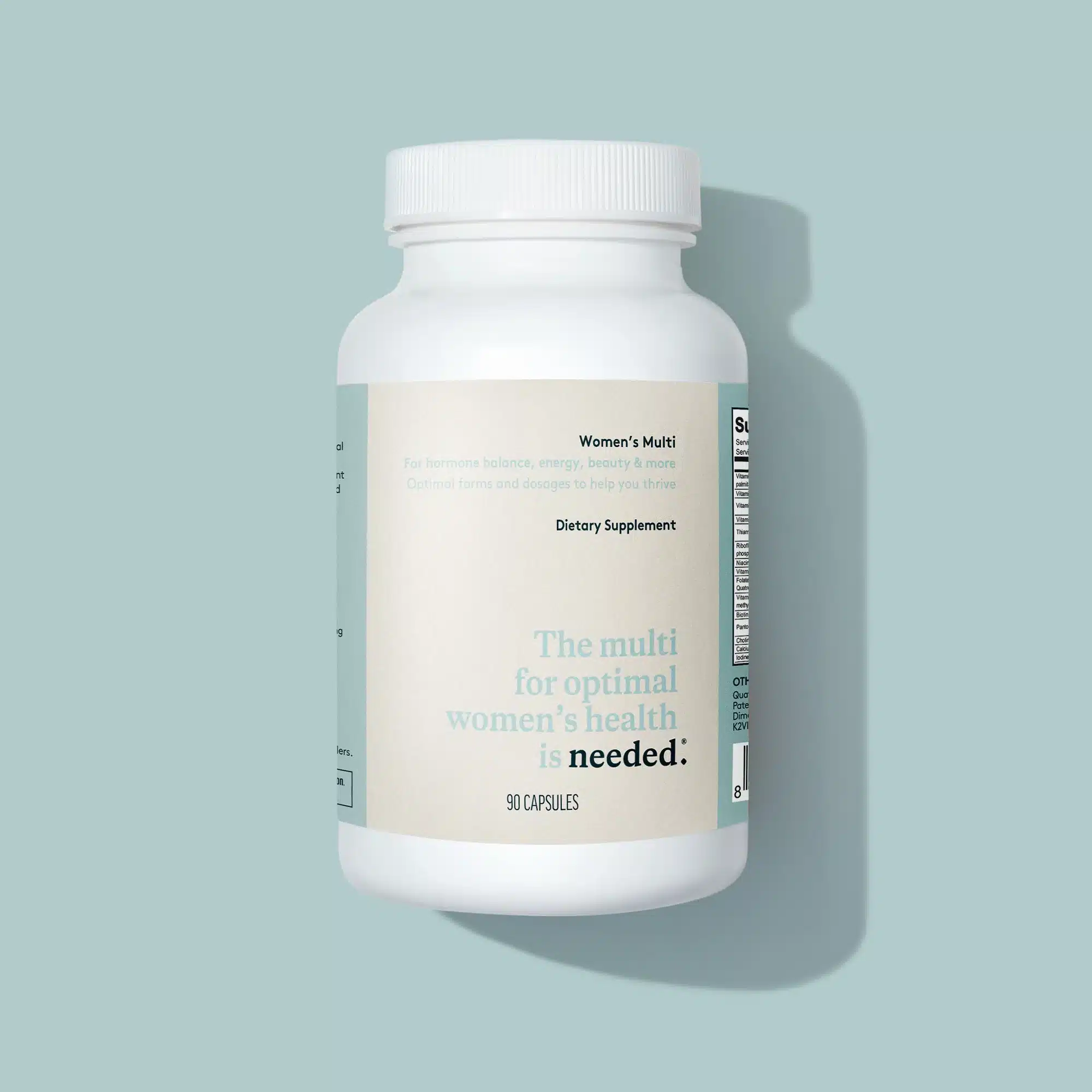
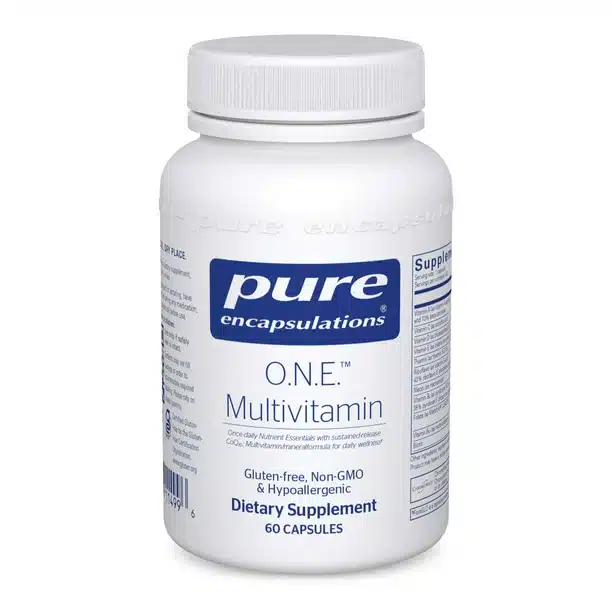
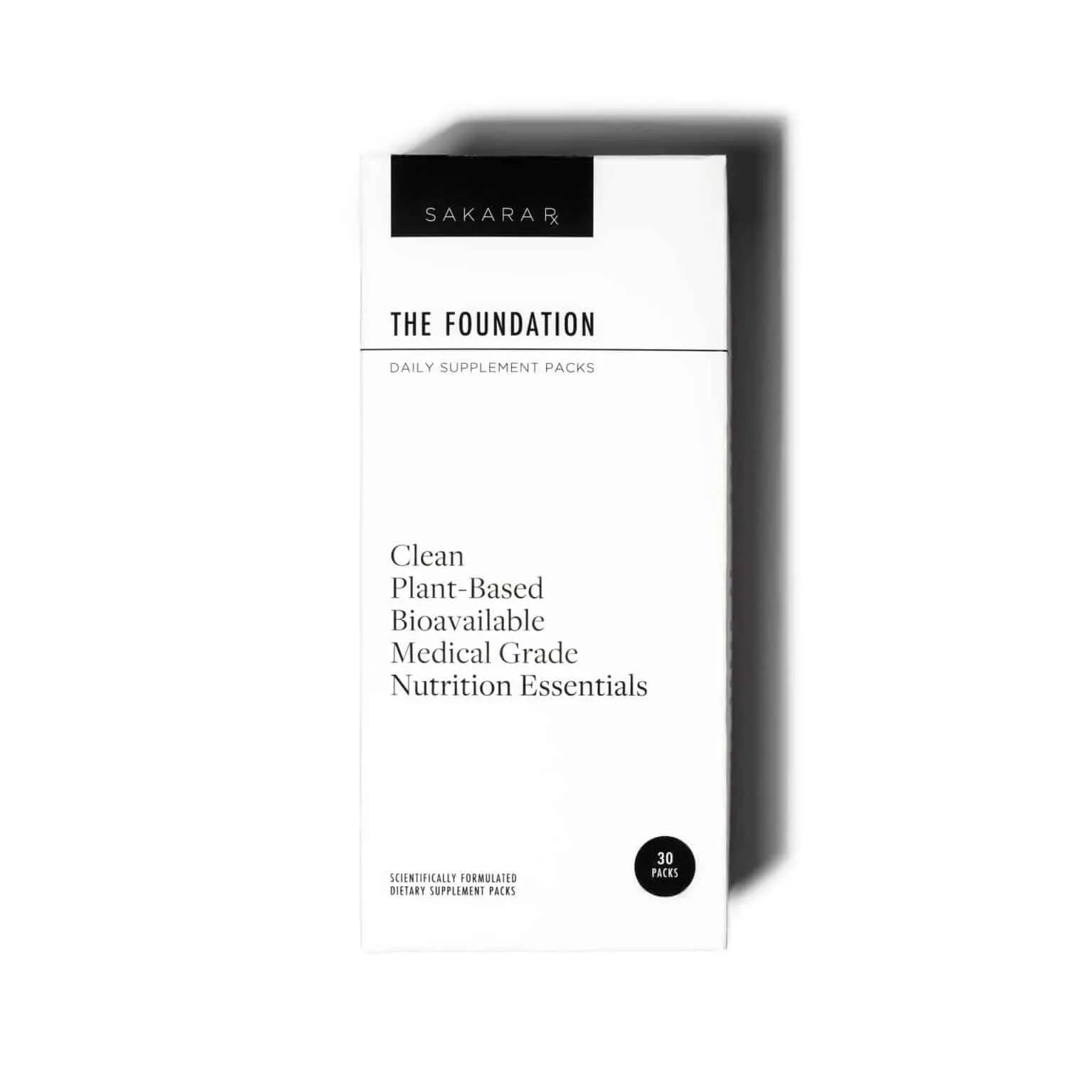
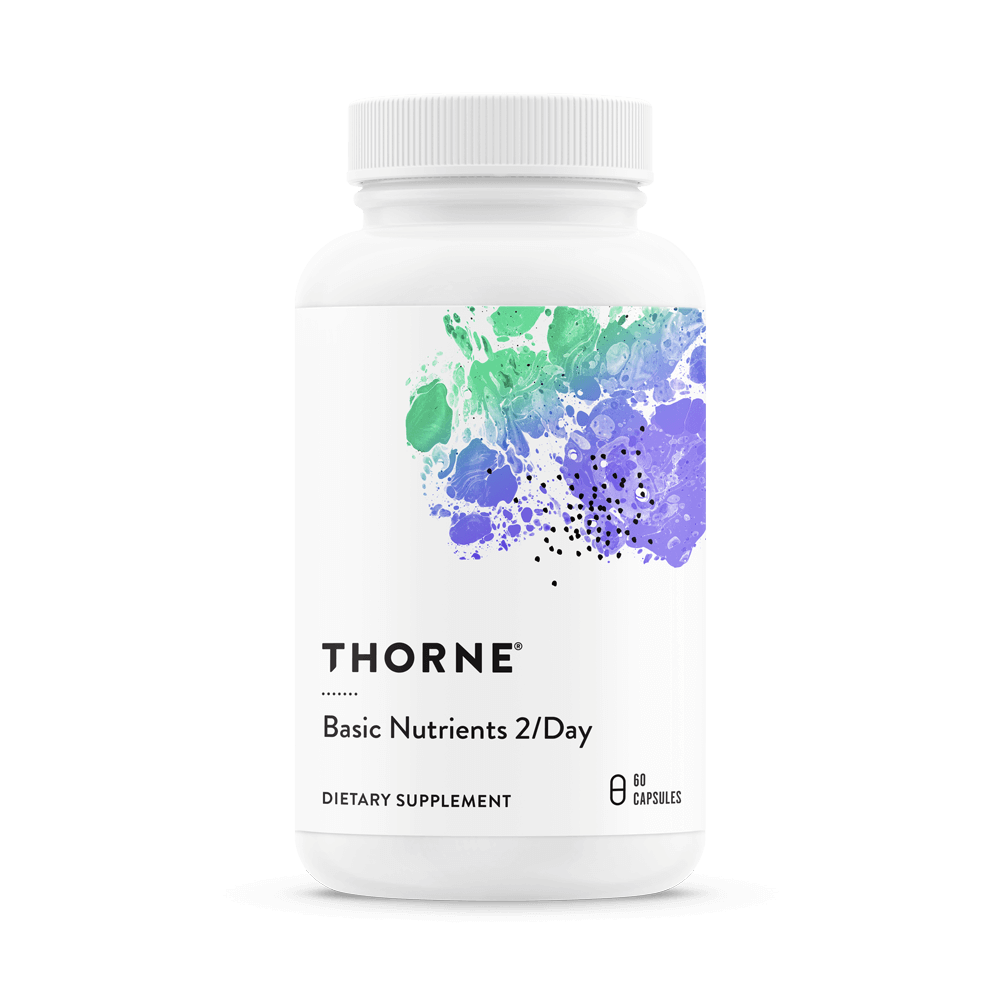
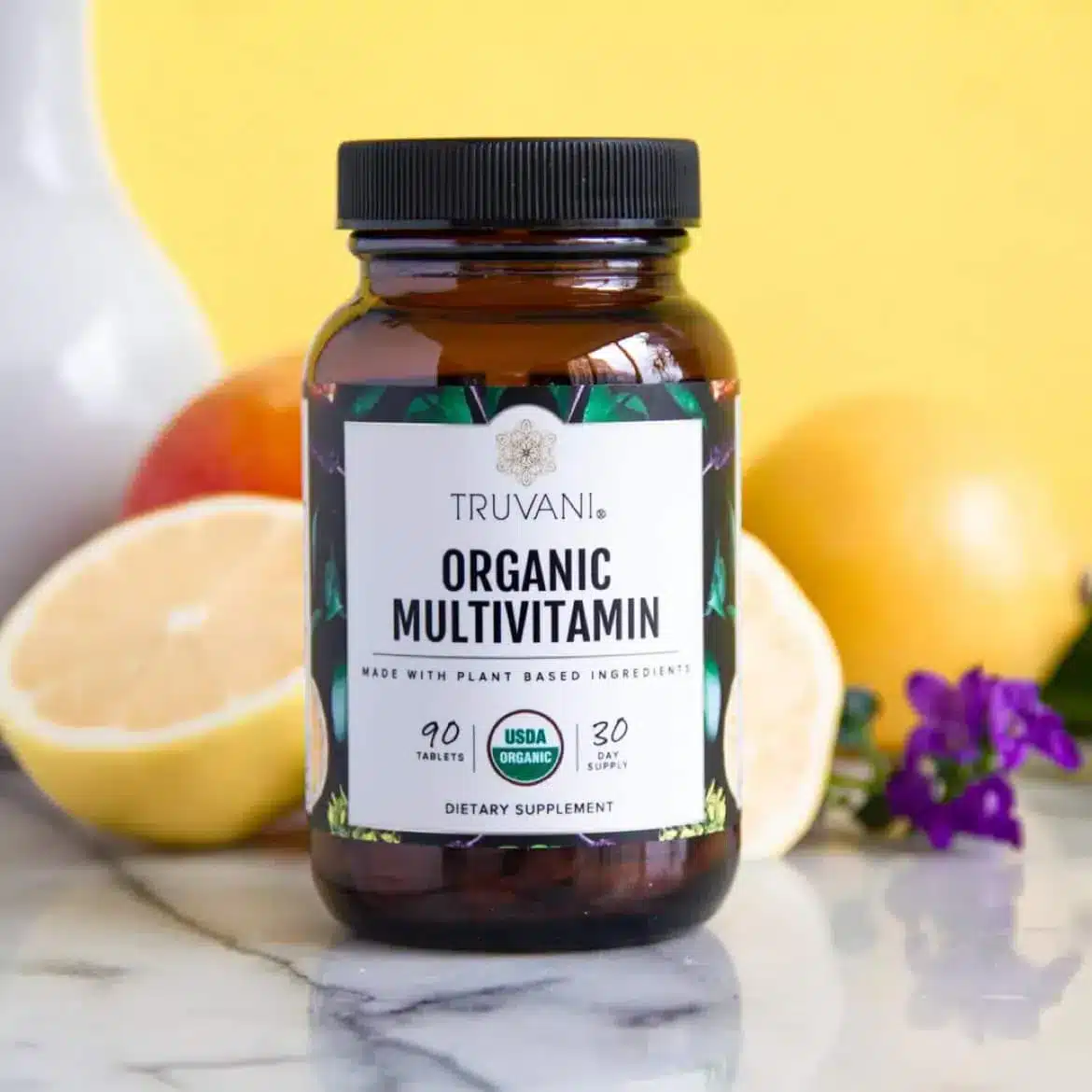
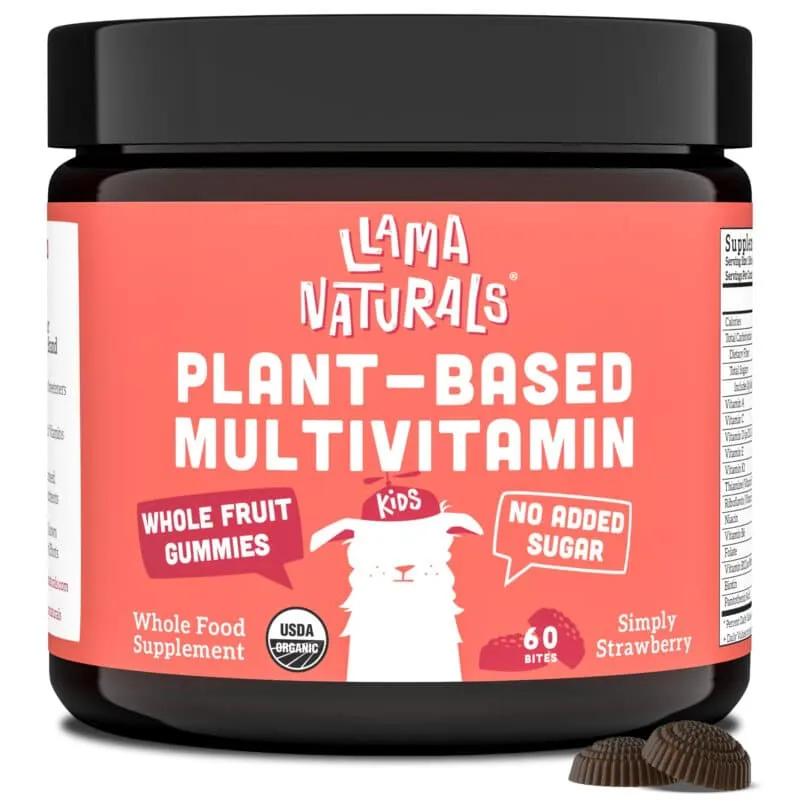
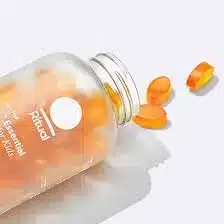




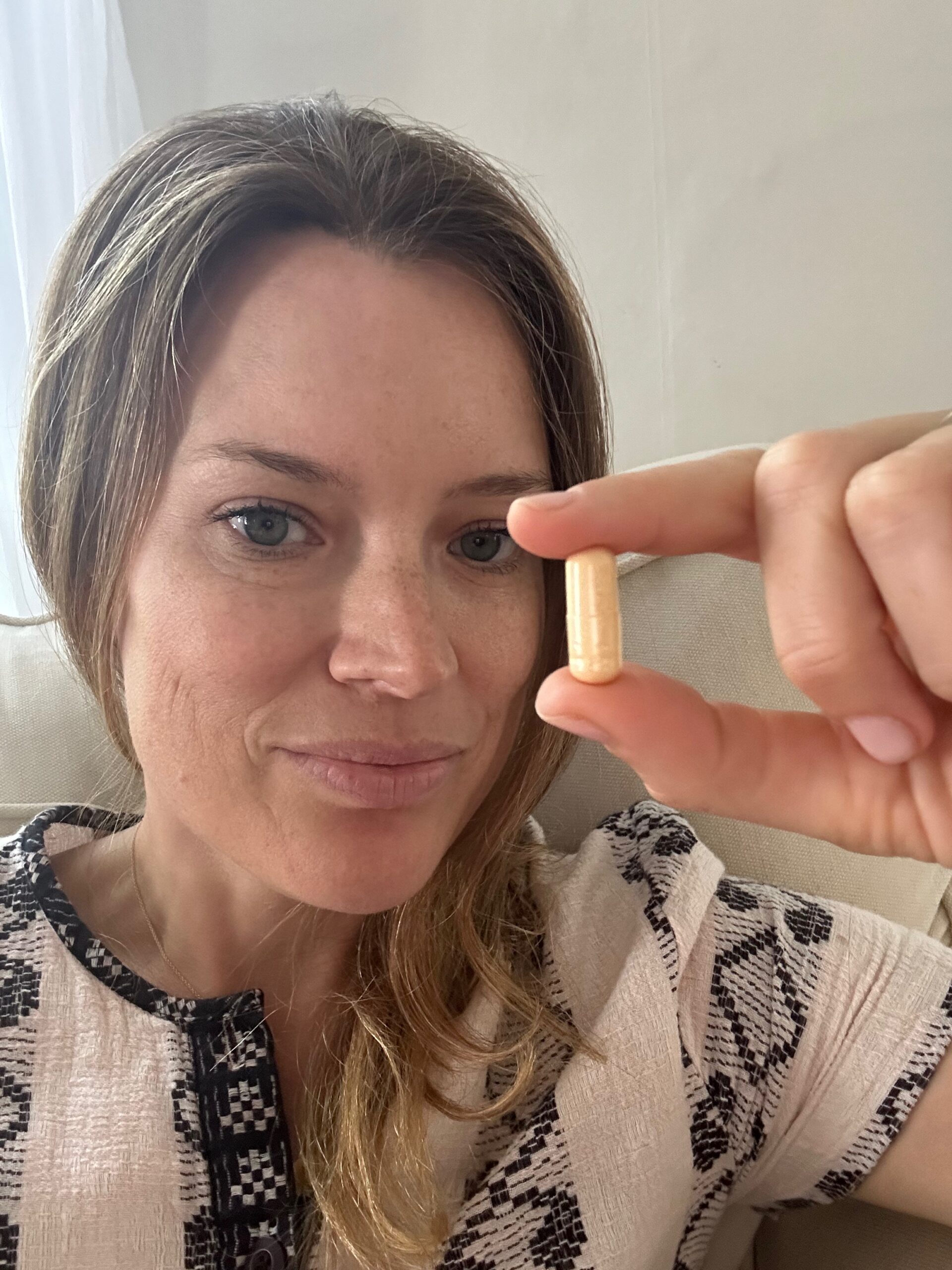
Leave a Reply
You must be logged in to post a comment.